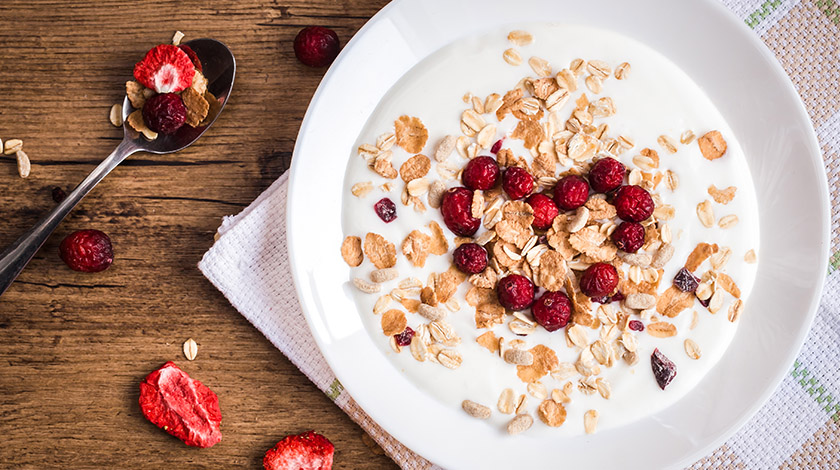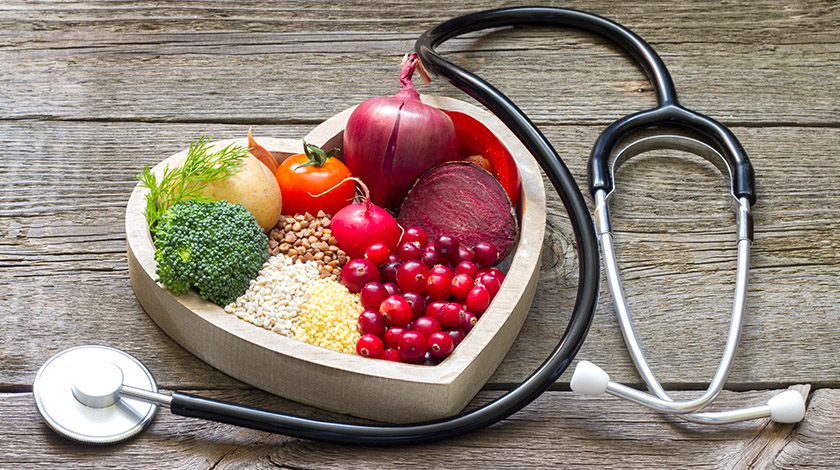When you think about it, our heart gets through a tremendous amount of work for such a tiny organ. The average adult’s heart pumps out between 5 and 20 litres of blood per minute and beats more than 100,000 times a day.1 If you pile lifestyle stresses on top of all this hard work, your heart might not be able to cope. That’s why it’s absolutely crucial to keep your heart in great shape by living your life with your cardiovascular health in mind!
Heart Disease
Understanding heart disease is the first step to preventing it. Coronary heart disease (or CHD) is a condition whereby your arteries become clogged up by fatty deposits known as plaques. As plaques build up, your arteries become narrower and narrower.1,3
Think of your arteries as little roads by which blood travels to your heart and keeps it pumping away. When those roads get constricted, your blood has trouble flowing and your heart gets weaker and weaker. And if one of those nasty plaques breaks away, blood clots can form and cause a heart attack.
If all this sounds scary, that’s because it is, the good news is, lifestyle factors have a tremendous impact on one’s cardiovascular health. By making slight tweaks to your lifestyle, you can minimize your risk of developing CHD! Here’s our five-point plan for a healthier heart.
Step by step guide to a healthy heart
1. Eating well.

Now that you know what causes coronary heart disease, the importance of a healthy diet should be instantly clear. Coronary heart disease is caused by fatty deposits in your arteries – cutting down your fat consumption is therefore key to preventing heart disease!4
However, it’s important to distinguish different kinds of fat.
- The two kinds of fat you should avoid as saturated fats (animal fat and drippings, dairy products and palm oil) and hydrogenated fat (found in most pastries, cakes, deep-fried food and margarine).4,5
- In contrast, omega-3 fatty acids can actually reduce your risk of heart disease and improve blood flow. These are found in oily fish (salmon and sardines being two common examples) as well as most seeds and nuts4. Add some of these foods to your diet for a healthier heart – they’re all absolutely delicious!
Fat intake isn’t the only aspect of your diet you need to watch. Sugar and salt need to be consumed in moderation too.
- Consuming too much sugar can cause diabetes and obesity, which is strongly linked to heart disease.1,3 Remember that simple sugars aren’t just found in sweet treats like ice cream – refined carbohydrates like white bread and white rice are full of sugars too!
- As for salt, a high salt intake can lead to hypertension (or high blood pressure), which is also linked to CHD. Consume no more than 5 grams of salt per day to lower your risk of developing hypertension.4
2. Get active.

An active lifestyle doesn’t mean running a marathon every other week or starting a rigorous rock-climbing regime. All you need is three 30-minute sessions of moderate-intensity exercise each week2. This can consist of swimming, weightlifting, running, etc. The cardiovascular benefits of regular exercise are manifold. Three key ones are:
- lowering your blood pressure;
- strengthening your heart for more efficient circulation (i.e., your heart will be able to pump more blood with each heartbeat); and
- increasing oxygen supply to the muscles.
So no matter how busy you are, set aside some time during the workweek to get your blood pumping. You’ll look and feel better.
3. Quit smoking.
People who smoke are, depending on the volume of nicotine consumption, between 60 and 80% more likely to die from CHD than non-smokers.6 There are three reasons for this.
- Nicotine causes a sharp spike in your heart rate, making your heart work harder.
- Smoking causes the blood to thicken, making it more likely to clot and thereby increasing the chance of a heart attack.1,3
- Smoking reduces the amount of oxygen that travels to your heart, reducing the efficiency of oxygen circulation in your blood.
Quit smoking and you can reduce your chances of dying of CHD by 36.9%.6 If you ever needed an incentive to put down that cigarette, this is it.
4. Limit your alcohol intake.
Consumption of alcohol has been shown to “thin” the blood and increase the risk of developing CHD.1 This is particularly so for binge-drinking, defined as consuming 3 or more units of alcohol a day for women (4 or more for men) twice or more a week.
There’s no need to go teetotal. Having one or two glasses of wine a week won’t hurt. As with other foods linked to CHD, moderation is the key.
5. Relax

A growing body of research has linked high stress and anxiety levels to CHD. Think about the last time you felt nervous. Your heart started to pound and your palms got sweaty. You might even have felt a bit lightheaded. That’s because stress causes your heart rate to soar, in addition to releasing hormones that encourage arterial clotting.1,3 Spend multiple days a week in a state of anxiety, and your heart might start to get overtaxed.
If you work in a high-stress job or the pressures of life are getting you down, take some time to practice relaxation techniques such as meditation, deep breathing or yoga. Even an evening walk after a long day of work can do wonders for your stress levels.
Remember – a healthy mind, means a healthy heart!
Resources
- Cardiovascular Disease. British Heart Foundation. Visited 2 December 2013.
- At Least Five Times a Week. Department of Health. Visited 2 December 2013.
- Coronary Heart Disease. British Heart Foundation. Visited 2 December 2013.
- Preventing heart disease. NHS Choices. Visited 2 December 2013
- Trans-fats. NHS Choices. Visited 2 December 2013.
- Coronary heart disease statistics 2012 (Smoking). British Heart Foundation. Visited 2 December 2013.

